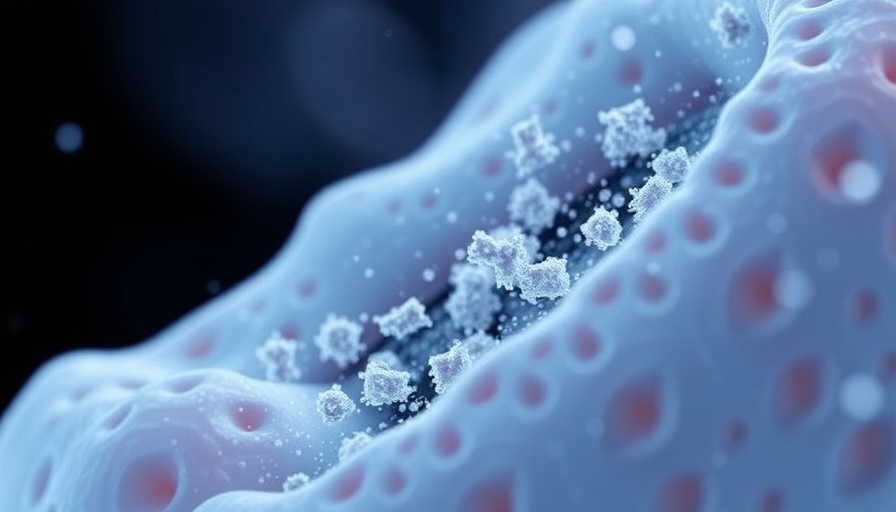
Understanding Titanium Micro-Particles in Dental Implants
Dental implants have become a cornerstone of modern dentistry, providing a permanent solution to tooth loss for millions of patients. However, recent studies have brought attention to titanium micro-particles found in the soft tissues around these implants. The presence of these particles could hold critical implications for patients, particularly those experiencing peri-implantitis—a serious inflammatory condition caused by microbial biofilms.
Unpacking the Findings
In a groundbreaking study, research from 21 patients indicated that titanium micro-particles are commonly found in soft tissues surrounding dental implants. Notably, this finding was consistent across patients regardless of whether they exhibited signs of peri-implantitis. This suggests that the titanium particles do not directly influence the onset of this inflammatory condition, a conclusion that brings considerable relief to dental implant patients.
The Mechanism of Action: How Implant Particles May Affect Tissue
The study utilized Micro Proton-induced X-ray Emission (µ-PIXE) analysis to characterize the presence and density of titanium micro-particles in the tissue samples. Such methodologies are vital for understanding the locale of these particles, which primarily resided within a 2mm range of the implant surface. This opens up discussions about how these particles interact with surrounding tissues and whether they play any role in long-term implant success.
Impact of Duration and Implant Type
Interestingly, the study revealed that the length of time the implants were functional did not significantly affect the density of titanium micro-particles present. However, variations among implant systems suggest that specific materials or designs may lead to different responses in soft tissue health. Future research will be essential in determining optimal implant materials and designs to enhance patient outcomes.
Gene Expression Profiles: What They Reveal
The RNA sequencing conducted alongside the particle analysis uncovered 14 differentially expressed genes when looking at samples from patients with high and low densities of titanium micro-particles. These genes are linked to crucial biological processes, including immune response regulation and epithelial development. Understanding these gene expressions may help tailor post-operative care and methodologies to mitigate risks associated with dental implants.
Potential Future Trends in Dental Implantology
As research continues to unfold the complexities of implant interactions with patient biology, several trends are likely to emerge in dental implantology. Personalized implant systems that consider the individual patient’s biology, ongoing monitoring of particle accumulation, and potential biomaterials will undoubtedly shape the future landscape of dental restoration.
Final Thoughts: The Path Forward for Dental Health
For our health-conscious audience, what this study signifies is potent: titanium micro-particles are an expected component of dental implants, not a contributor to complications such as peri-implantitis. This knowledge empowers patients and healthcare providers alike to make informed decisions about dental care technology. As always, remain proactive about dental health—consult your dentist if you have concerns regarding implants or other restorative procedures.
For further insights into dental implants and emerging technologies in oral health, stay updated with industry developments and consider speaking with your dental professional about how to maintain and care for your dental implants effectively.
 Add Row
Add Row  Add
Add 




Write A Comment